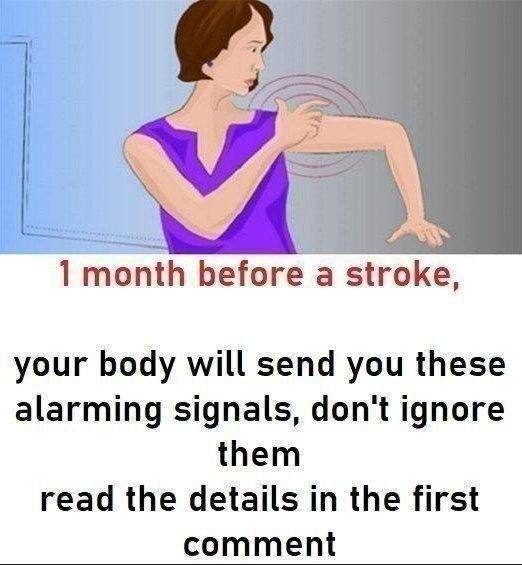This third kind of brain injury is not a stroke in the traditional meaning of the word. In fact, it is referred to as a transient ischemic attack if the artery-blocking factor goes away on its own and causes no aftereffects. In terms of the symptoms, they should be the same as those of a stroke and should only last a few seconds or minutes before going away entirely. These factors contribute to the difficulty in identifying transient ischemic attacks (TIAs), which may even be mistaken for a general feeling of illness. But because there is still a chance of stroke, it is crucial to be on guard and call 15 if this occurs.
Learn the warning signals that may indicate a stroke one month in advance to aid in its prompt treatment.
Body numbness or weakness is a sign of a stroke.
The face, limbs, and legs all show this. Because a stroke affects just one hemisphere of the brain, it often only affects the right or left side of the body. Therefore, a grin that seems weaker on one side of the lips or numbness in the arm are two indicators that should be taken seriously.
A stroke may cause fainting.
Blackouts, fainting, dizziness, and a “spinning” sensation are among more concerning signs. Although they don’t always indicate a stroke, they do indicate a serious health issue, so it’s best to get medical advice as a precaution.
Vision is affected by a stroke.
It is possible for abrupt visual difficulties to arise prior to a stroke. You may have impaired vision, glare, loss of color perception, or even blindness.
A headache may be a sign of a stroke.
Headaches that are sudden and very severe might occur sometimes. They may be so strong that vomiting occurs along with them. They may indicate something more serious than a straightforward migraine.
impairment of coordination after a stroke

It is possible to get unexpectedly disoriented and unable to move normally just before having a stroke. It may impact one particular area or the whole body. Additionally, trouble speaking or finding words might occur.
Breathlessness: a possible stroke symptom
In many instances, experiencing dyspnea in an unfamiliar setting without any additional or minor exertion may potentially serve as an early warning indication of a stroke.
Do not hesitate to get in touch with a specialist if you are even the least bit unsure about your health.

